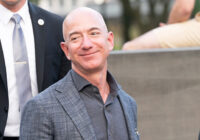In his recently published book, “Evil Geniuses: The Unmaking of America,” Kurt Andersen examines and deconstructs the past 50 years of economic history in the US. He tells the story of a disastrous but well-orchestrated trend toward rising and aggravated income inequality that has permitted the creation of new forms of class division.
Andersen’s book reveals in significant detail who was involved, how it played out, its ideological underpinnings and where it is likely to take a society that seems incapable of preventing it from tearing to shreds the social fabric. Interview by Yahoo Finance’s Andy Serwer, Andersen makes the shocking revelation that Warren Buffett is the one prominent billionaire who has admitted to understanding his role as a soldier in a class war.
Thoughts On Colonial History for Columbus Day
Reviewing the book for The New York Times, Anand Giridharadas, a gadfly who has been jabbing at billionaires in the media and in his own books for several years now, intriguingly describes “Evil Geniuses” as a “saxophonely written new book.” This may mean he’s comparing it to exciting musical creations such as Charlie Parker’s delicious “Scrapple from the Apple” or John Coltrane’s powerful and contemplative “A Love Supreme.” Unless he happens to be thinking of Kenny G. In his review, Giridharadas cites many non-musical reasons for admiring Andersen’s book.
Summarizing its scoop, Yahoo posts this headline above its interview with Andersen: “Warren Buffett is ‘extraordinary’ for acknowledging class warfare by the rich: Kurt Andersen.”
Here is today’s 3D definition:
Class warfare:
A Marxist myth that could never exist in a real meritocratic, democratic capitalist society since individuals are free to decide whether to be a maker or a taker and will only have themselves to blame if they accept to become takers
Contextual Note
Yahoo may be giving Buffett more credit than he deserves by calling this an acknowledgment of “class warfare.” In the interview, Andersen refrains from using the term “warfare,” which refers to the methods and means of battle. He simply describes Buffett’s awareness of a situation that objectively resembles class war.
In his book, on the other hand, Andersen describes in great detail not only the history of that war but also the nuts and bolts of the weapons and military machinery deployed. He traces 50 years of active and highly-effective class warmongering that began with initial skirmishes around 1970. Thanks to the complicity of every sector of society capable of influencing the operations and the resounding success of its battle plans, it may, according to Andersen, be presaging the decline of an entire civilization.
Yahoo plays up as a major scoop Andersen’s assertion that Buffett, sometime in 2005 or 2006, explicitly endorsed the idea that class war is real. The very idea of class struggle, along with everything else that smacked of Marxist thought, was long ago banished from public discourse in politics, the media and finance. In more recent times, the idea has been revived by progressives and populists, but the media simply deny its relevance by characterizing it as “extremist.” The fact that an archetypal icon of capitalism acknowledges its reality should be an eye-opener. But will Yahoo’s timid scoop shake the world and wake up the rest of the media?
Andersen presents his evidence. He quotes Buffett’s words: “There’s been a class war and it’s my side, it’s the rich people and we’re winning and we shouldn’t be.” For many, this won’t sound surprising since prominent people often say things in private that they will never admit in public. The questions we are left asking ourselves are these: Does this represent Buffett’s deepest feelings? Does Buffett have an idea of how war can give way to peace? And if so, why has he never made a public issue of it?
Anyone familiar with Buffett’s character knows that he lacks the personality traits we attribute to political, social or economic crusaders who might feel impelled to reform a system they deem unjust, even when the same system allows them to profit from it at will. Andersen calls Buffett “a decent rich guy,” which doesn’t sound like a glowing compliment until, elsewhere in his book, he presents evidence that shows how utterly indecent so many of the rich guys are who have been actively waging the class war Buffett acknowledges as real. Buffett is decent because he thinks about consequences even if he makes no serious moves to act on them.
A friend of this author who personally knows Buffett once casually asked him about the potential for cognitive dissonance in supporting or at least praising progressive political causes while investing in companies exploiting fossil fuel. Buffett reportedly replied, “Philanthropy’s one thing, investment another.” Most people would put that one up to Buffett’s ability to focus. Some would say that it is consistent with the autistic trait that has always been apparent in Buffett’s character.
Andersen believes Buffett’s loyalty to “old school investing” — where the investor puts the money in for the long haul and takes an active interest in the company’s development — remains a refreshing contrast with the more recent “take the money and run” philosophy of private capital and hedge funds. For Andersen, it even constitutes a model for good capitalism or what he thinks capitalism should be. His attitude sometimes resembles a nostalgia for times past that could be described as the wish to “make capitalism great again.”
Historical Note
Anand Giridharadas highlights a key point that emerges from Kurt Andersen’s analysis. It is one that most media are unlikely to admit and will never broadcast. That includes MSNBC, the cable news outlet for which Giridharadas is a regular contributor. He notes that “one place Andersen does break some new ground is in the portrayal of the shameful liberal complicity that was essential to the long plutocratic hijacking.” He adds, “it is head-spinning to be reminded how much of the nation’s turn to the right and to the rich the Democrats enabled.”
MSNBC would never allow its contributor to develop these ideas on its airwaves. The network is too dedicated to denying “liberal complicity” in anything, whether it’s in finance, military expansion or the increasingly powerful security state. It is too focused on attacking the only evil genius it acknowledges: Donald Trump. On the other hand, Fox News might be tempted to seize an occasion in which someone on the left accuses the Democrats of complicity in the sins Andersen identifies. But, of course, Fox News doesn’t consider them sins, so the exercise is never likely to take place.
During the Democratic presidential primaries, Giridharadas appeared as the only regular voice on MSNBC to explicitly support Senator Bernie Sanders. In late August, he wrote a piece for The.Ink, urging people to vote for the Democratic candidate Joe Biden on November 3. He began the article with these words: “Joe Biden was not my ideal nominee.” He went on to explain in detail his hesitations and doubts about both Biden’s past career and his character as well as what Biden, once elected, is likely to deliver. This is consistent with his critique of the Democratic Party as a whole that he expressed in his review of Andersen’s book.
Giridharadas nevertheless pleads the case for voting for Biden in the US presidential election, expressing his hope that once elected, Biden will understand the historical situation that requires committing to fundamental change if there is any hope for healing after four years of President Trump. He hopes that Biden, the man who lauds “possibilities,” may possibly live up to the challenge. “I will say, as an erstwhile skeptic of a Biden presidency,” he writes, “that I believe Biden could, if he chooses, pull it off.”
Many Americans, at least on the left half of the spectrum, feel the same way. The parallel with another aging man, Warren Buffett, is worth keeping in mind. It’s still easy for lucid people who made their way into the upper echelons of the financial, political or social elite to see and acknowledge what is required, but to fall back on a different line of reasoning. Reform for Biden is like philanthropy for Buffett — well worth talking about, so long as it doesn’t get in the way of business as usual.
*[In the age of Oscar Wilde and Mark Twain, another American wit, the journalist Ambrose Bierce, produced a series of satirical definitions of commonly used terms, throwing light on their hidden meanings in real discourse. Bierce eventually collected and published them as a book, The Devil’s Dictionary, in 1911. We have shamelessly appropriated his title in the interest of continuing his wholesome pedagogical effort to enlighten generations of readers of the news. Read more of The Daily Devil’s Dictionary on Fair Observer.]
The views expressed in this article are the author’s own and do not necessarily reflect Fair Observer’s editorial policy.
Support Fair Observer
We rely on your support for our independence, diversity and quality.
For more than 10 years, Fair Observer has been free, fair and independent. No billionaire owns us, no advertisers control us. We are a reader-supported nonprofit. Unlike many other publications, we keep our content free for readers regardless of where they live or whether they can afford to pay. We have no paywalls and no ads.
In the post-truth era of fake news, echo chambers and filter bubbles, we publish a plurality of perspectives from around the world. Anyone can publish with us, but everyone goes through a rigorous editorial process. So, you get fact-checked, well-reasoned content instead of noise.
We publish 2,500+ voices from 90+ countries. We also conduct education and training programs
on subjects ranging from digital media and journalism to writing and critical thinking. This
doesn’t come cheap. Servers, editors, trainers and web developers cost
money.
Please consider supporting us on a regular basis as a recurring donor or a
sustaining member.
Will you support FO’s journalism?
We rely on your support for our independence, diversity and quality.






